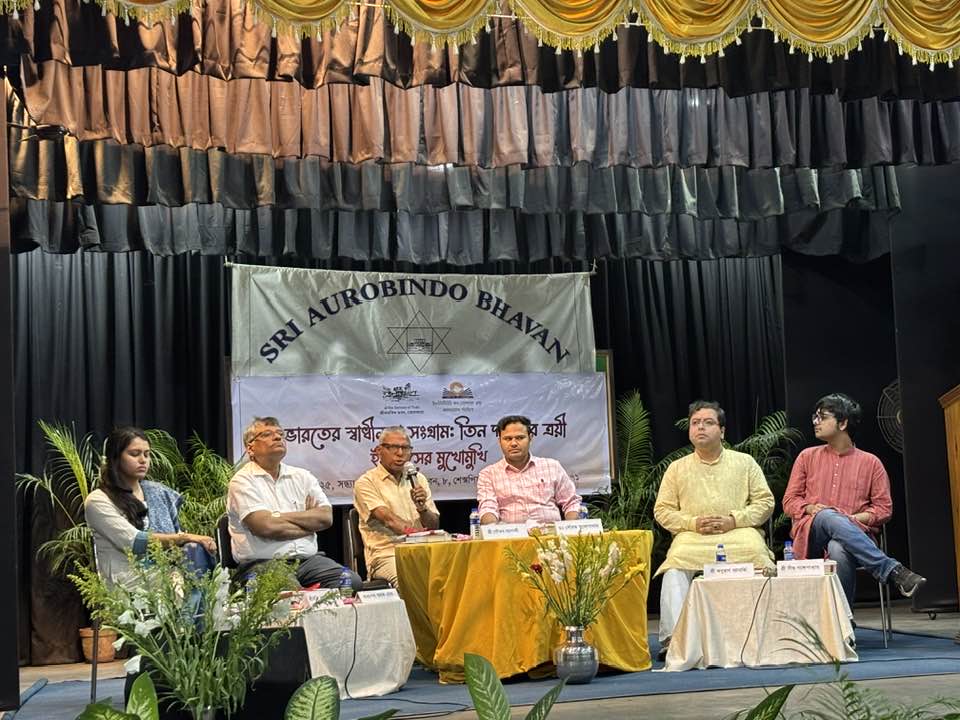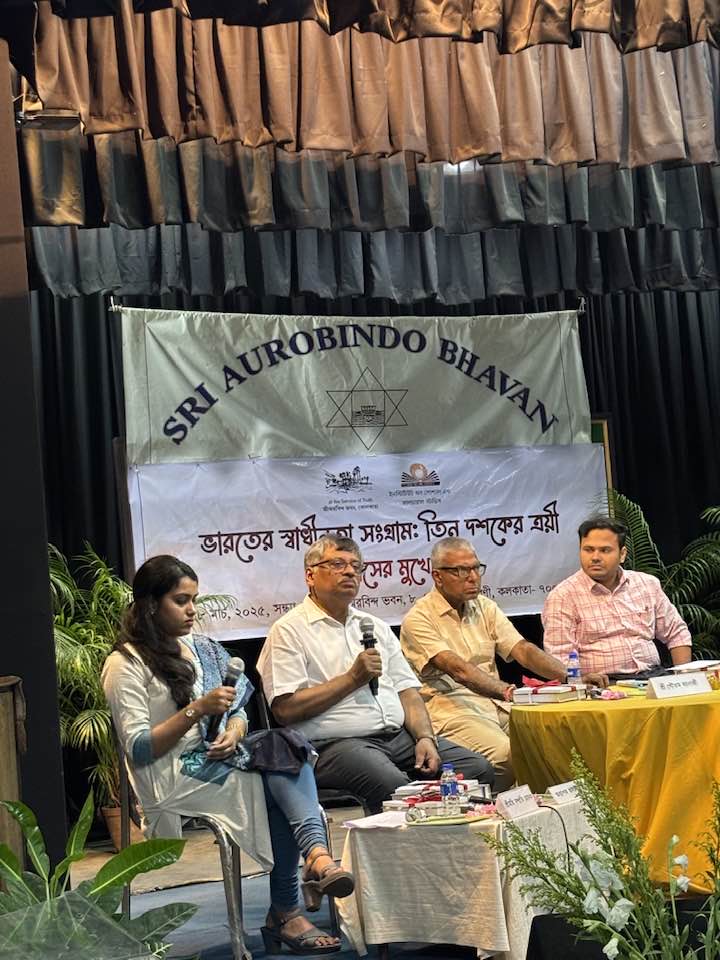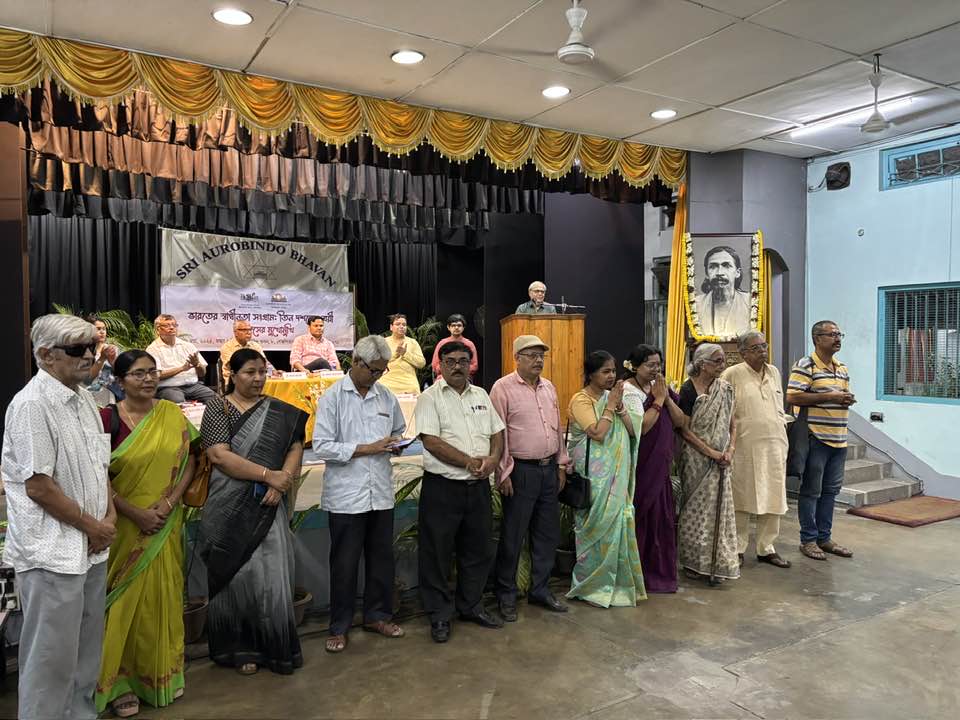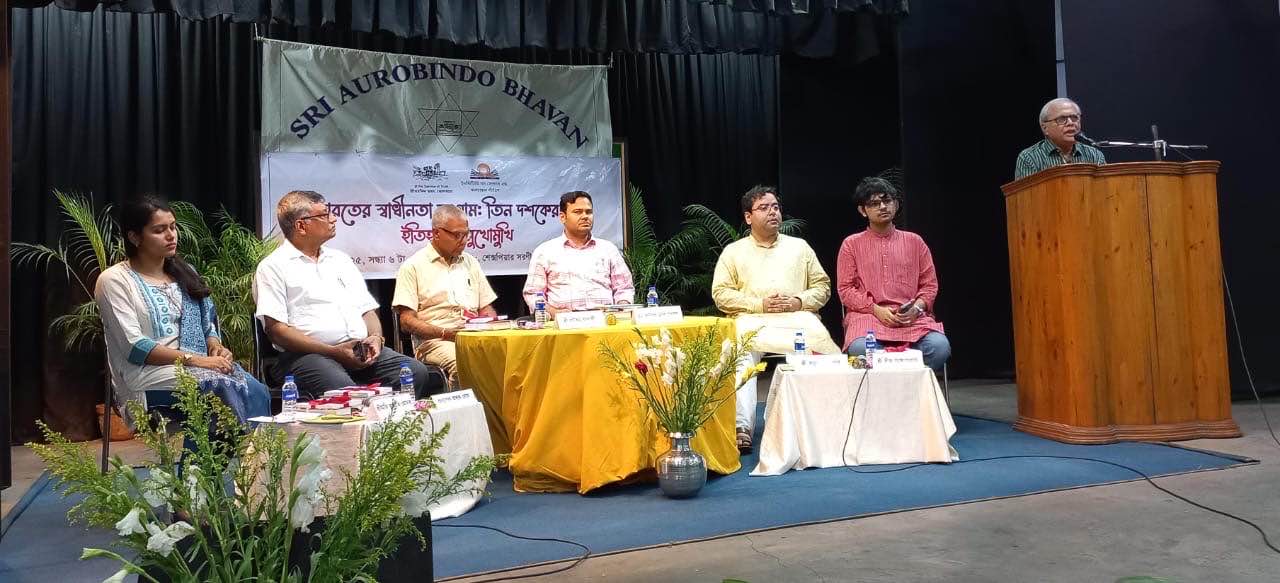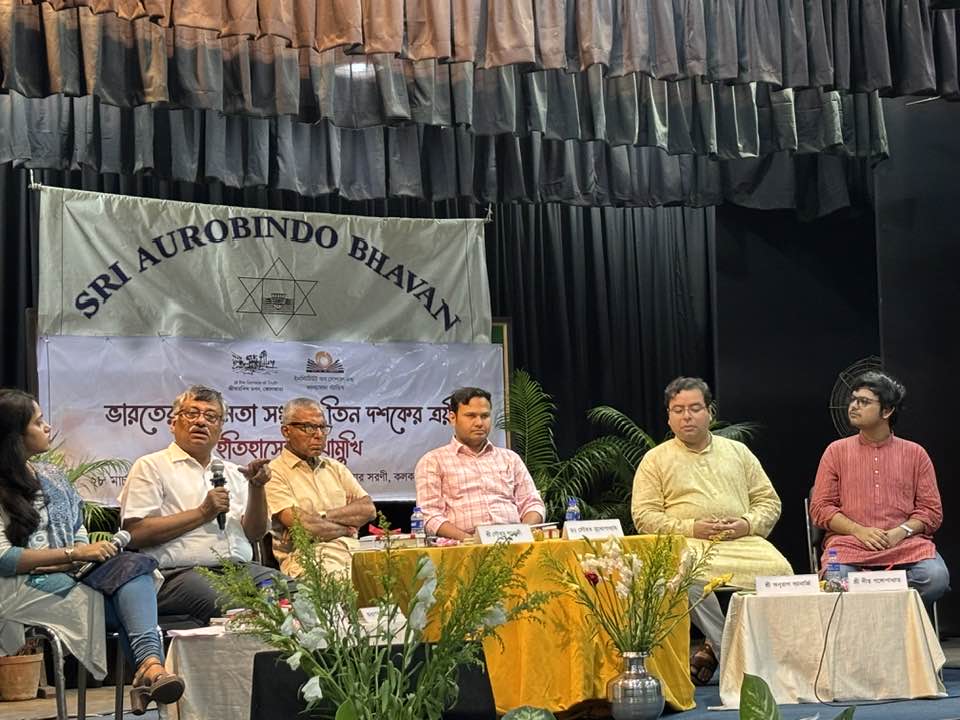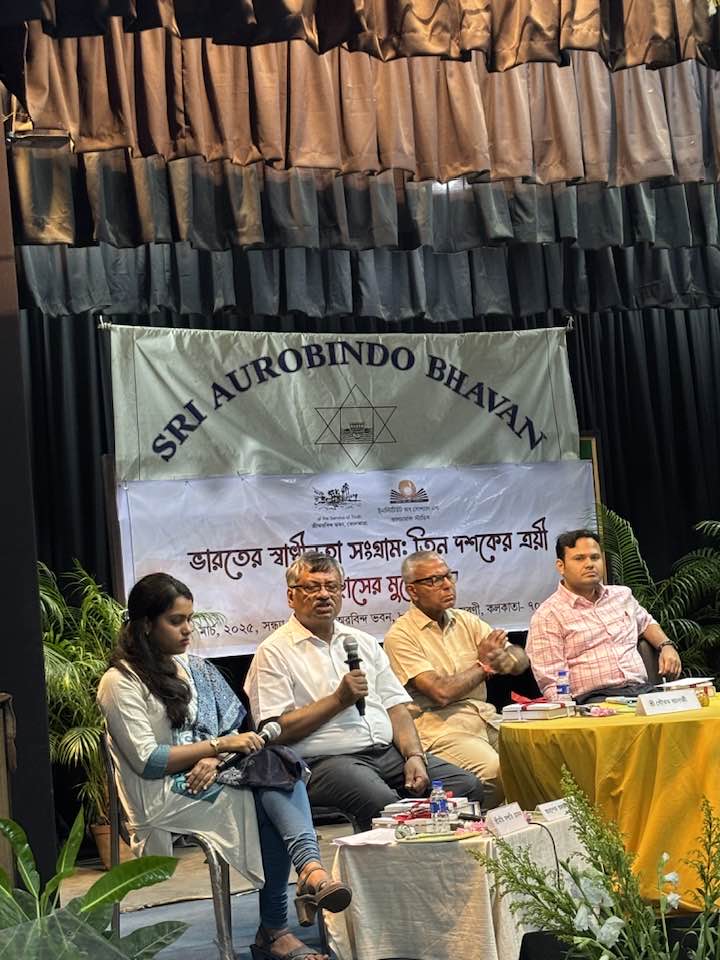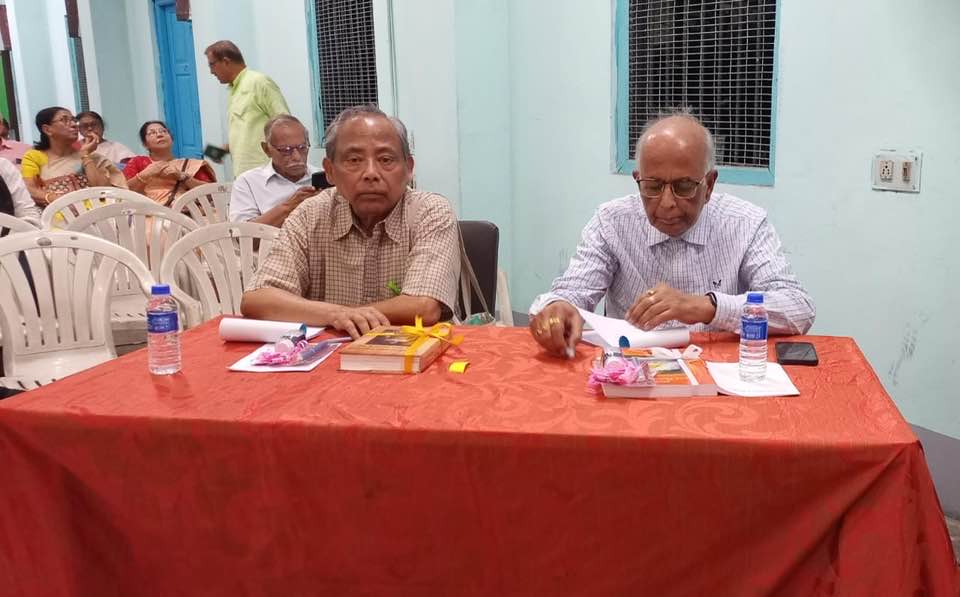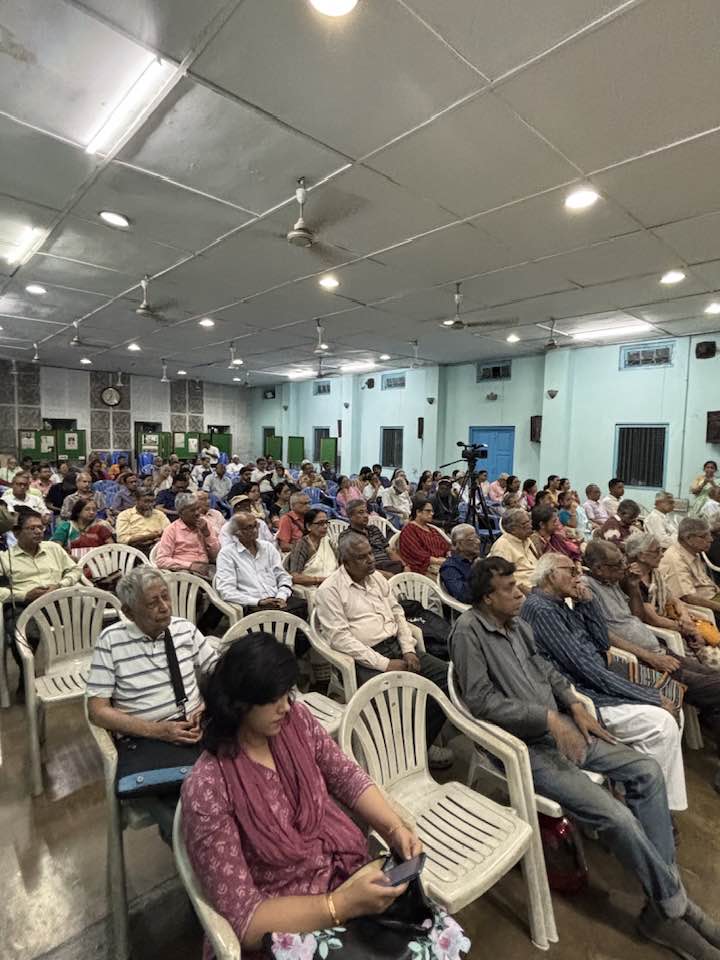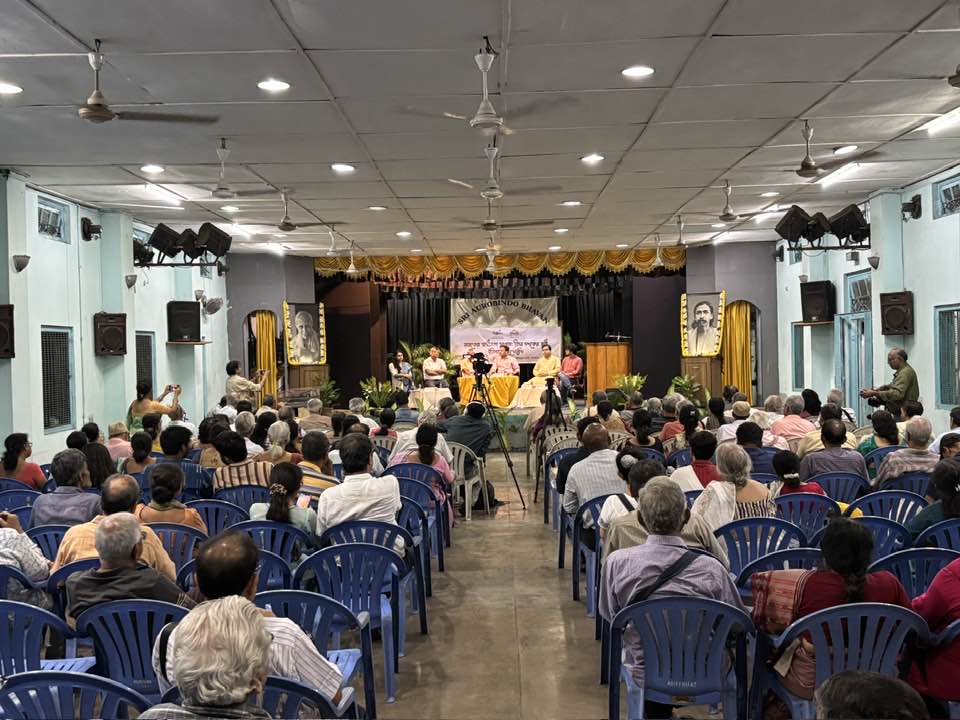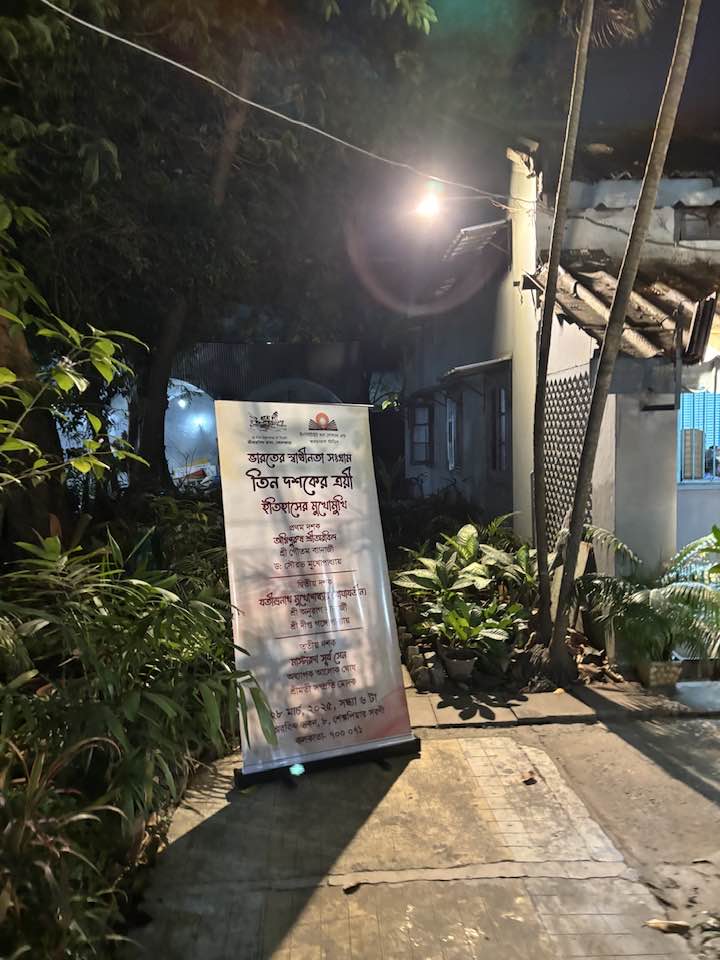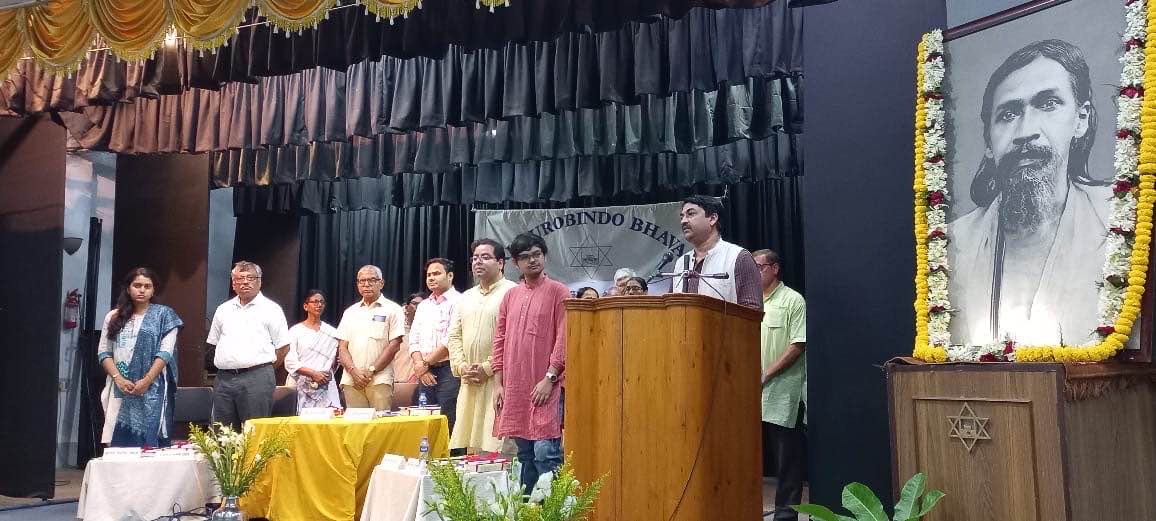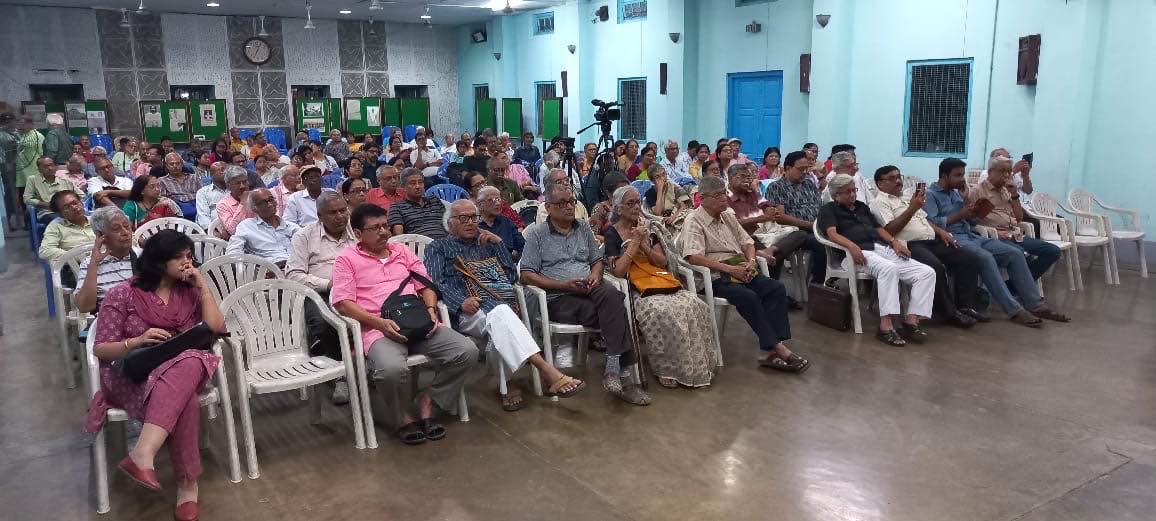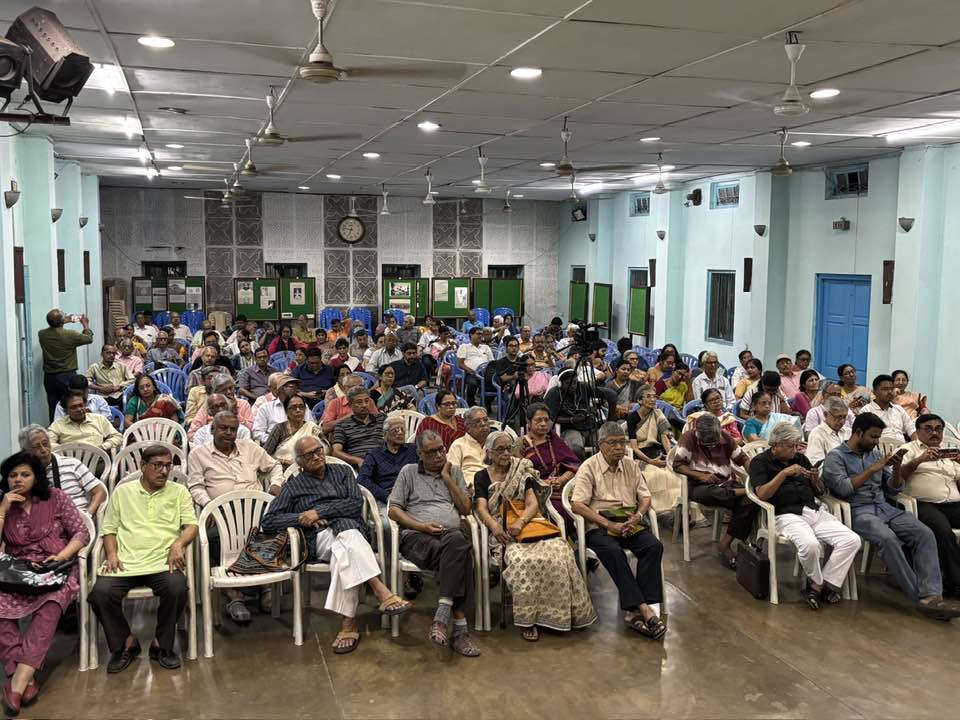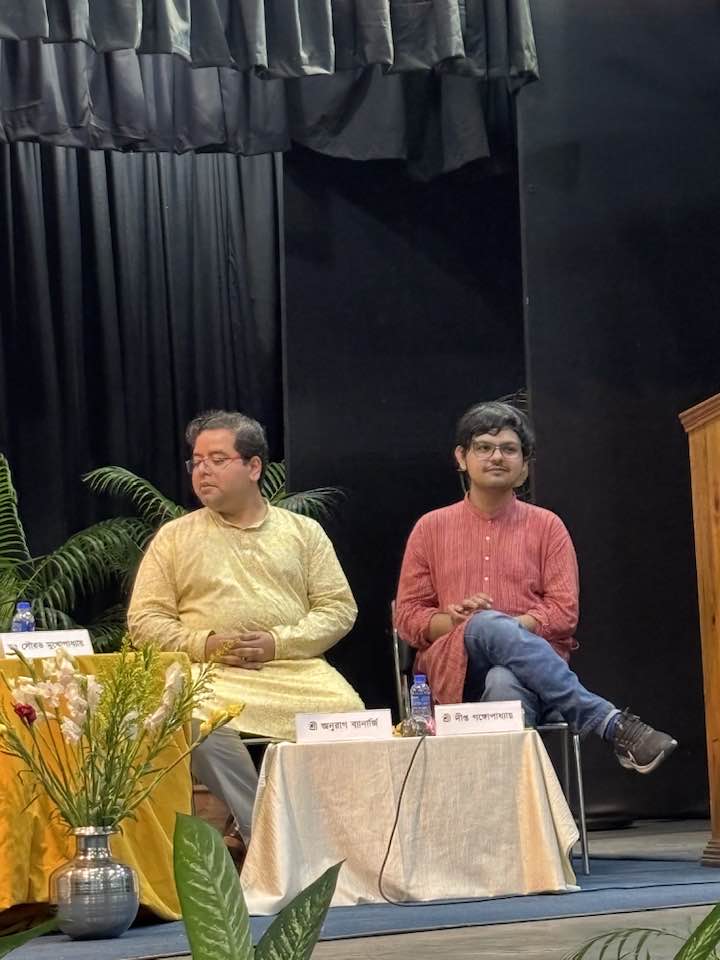Seminar on BharaterSadhinotar Sangram:TeenDoshokerTroiye
The Institute of Social and Cultural Chapters (ISCS) over its chapter on Freedom Struggle Studies intends to bring forth the saga of struggle and indomitable contributions of Indian Freedom Fighters to free their land from the influence and oppression of Imperialists. On the evening of 28th March, 2025, the Institute in collaboration with Sri AurobindoBhavan over its Discussion Session “BharaterSadhinotarSangram: Teen DoshokerTroiye”, rewound back in times to illustrate the contributions of Indian Freedom Struggle Warriors like Master Da Surya Sen, Sri Aurobindo, Shri JatindranathMukhopadhyay, profoundly known as Baghajatin.
The event was organized at a venue which is hailed as historically significant as it is the birth place of Sri Aurobindo himself and is a standing witness of many treacherous events of state and statism in the past. The event embarked with the address by Shri BiswajitGanguly, Trustee of Sri AurobindoBhavan and a meister who very skilfully curated the event. In his address he mentioned that the set up stage is exceptional from all other times as this is the first time when one generation would share, narrate and discuss the significant tenets of the Indian freedom struggle and their relentless contributions with the next generation in an informal yet edifying manner.
The discussion started with emphasizing on the contributions of Sri Aurobindo, and to discuss the same from seniority end, Shri GoutomBanerjee, Trustee,Aurobindo Shakti Centre, New Alipore, Kolkata was conferred by Dr.SourabhMukhopadhyay, Lecturer RabindraBharati University. While conferring interesting dimensions regarding Sri Aurobindo’s works were brought to focus. It was highlighted that Sri Aurobindo had read the Upanishads, ancient Indian literature, the Ramayana, and the Mahabharata before getting involved in revolutionary activities. However, the Mahabharata provided the most inspiration for him to get involved in the freedom struggle. Although he chose the path of religion while in prison, after his release from prison, he did not directly participate in any politics. However, he successfully motivated the youth to continue the fight against British imperialism. Sri Aurobindo’s role was also important in the outbreak of armed movements that were seen beyond the borders of Bengal, in parts of Maharashtra and Punjab.
The second set of discussion that twin between Mr.Anurag Banerjee, founder, Overman Foundation and DiptoGanguly, student, History Department, Jadavpur University, marshalled on the contributions of Baghajatin.It was said that in the first decade of the twentieth century we found a eminent fighter like Sri Aurobindo, while in the second decade we found Jatindranath Mukherjee among the revolutionaries. According to Shri Banerjee with the turn of the century, Baghajatin remain of particular importance for laying down course of activity and conflating revolutions against British through spirit of collectivism. Standing at that time, Baghajatin was able to stretch upon among Bengali society for the need for freedom. He further said that although Baghajatin was a fighter of the armed revolution, he was a very sensitive person towards his fellow fighters. According toShriBanerjee, Baghajatin was such a hero of the armed revolution, whose death inspired many more youth to join the freedom struggle.
The last circle of discussion circled on the role and unbeatable spirits of Master Da Surya Sen, the discussion elucidated correspondence among Dr.Alok Ghosh, History department, Kalyani University and new age researcher Ms.SampratiModak, ISCS. The discussion was a reflection of the ideology ofMasterda Surya Sen, his compassion for women empowerment and his close connect with Netaji Subhash Chandra Bose. The discussion summarised Master Da and PritilataWaddedar’s role in Chittagong armory raid arsenal and their fight against British imperialism denoting their intense aspiration to wave out British from their motherland. In comparison to then, question was asked about the recent trends in Bangladesh, where the students as a major force acting upon to usurp the elected government. It depicted that political changes that have taken place in Bangladesh are completely different, and have nothing to do with the Swadeshi movement of that time. What has happened in Bangladesh is planned and has the support of external forces and non-state actors.
The interesting session marked its conclusion with unfolding analysing facts and mainly bringing forth the distinguishing factors between the nation lovers thenwho bated breath fought against the British imperialist to attain free India, where one can pursuit their interests without being shackled of colonial forces and ideologies in contrary to present times reformers, policy makers and elected representatives who swear in to dispense themselves towards nationhood, but are motivated with vested interests and pursuing nation for self-advancement.
The time constraints finally lead the curtains to roll down with an aspiration for yet another interesting chapter to be presented soon on similar interests as referred by Shri Arindam Mukherjee, Director, ISCS during his vote of thanks.




